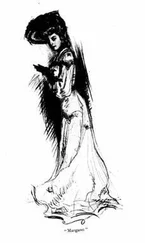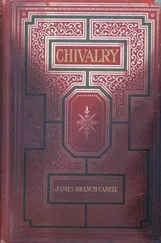James Cabell - The Cords of Vanity. A Comedy of Shirking
Здесь есть возможность читать онлайн «James Cabell - The Cords of Vanity. A Comedy of Shirking» весь текст электронной книги совершенно бесплатно (целиком полную версию без сокращений). В некоторых случаях можно слушать аудио, скачать через торрент в формате fb2 и присутствует краткое содержание. Жанр: Современная проза, на английском языке. Описание произведения, (предисловие) а так же отзывы посетителей доступны на портале библиотеки ЛибКат.
- Название:The Cords of Vanity. A Comedy of Shirking
- Автор:
- Жанр:
- Год:неизвестен
- ISBN:нет данных
- Рейтинг книги:3 / 5. Голосов: 1
-
Избранное:Добавить в избранное
- Отзывы:
-
Ваша оценка:
- 60
- 1
- 2
- 3
- 4
- 5
The Cords of Vanity. A Comedy of Shirking: краткое содержание, описание и аннотация
Предлагаем к чтению аннотацию, описание, краткое содержание или предисловие (зависит от того, что написал сам автор книги «The Cords of Vanity. A Comedy of Shirking»). Если вы не нашли необходимую информацию о книге — напишите в комментариях, мы постараемся отыскать её.
The Cords of Vanity. A Comedy of Shirking — читать онлайн бесплатно полную книгу (весь текст) целиком
Ниже представлен текст книги, разбитый по страницам. Система сохранения места последней прочитанной страницы, позволяет с удобством читать онлайн бесплатно книгу «The Cords of Vanity. A Comedy of Shirking», без необходимости каждый раз заново искать на чём Вы остановились. Поставьте закладку, и сможете в любой момент перейти на страницу, на которой закончили чтение.
Интервал:
Закладка:
"And Esau—" Charteris began.
"Yes,—but that's Biblical, and publishing a book is business. People say to authors, just as they do to tailors: 'I want such and such an article. Make it and I'll pay you for it.' Now, your tailor may consider the Imperial Roman costume more artistic than that of today, and so may you in the abstract, but if he sent home a toga in place of a pair of trousers, you would discontinue dealing with him. So if it amuses you to make togas, well and good; I don't quarrel with it; but, personally, I mean to go into the gents' furnishing line and to do my work efficiently."
"Yes,—but with your tongue in your cheek."
"It is the one and only attitude," I sweetly answered, "in which to write if you indeed desire to be read with enjoyment." And presently I rose and launched upon A Defence of That Attitude
"The main trouble with you, John Charteris, is that you will never recover from being fin de siecle . Yes, you belong to that queer dying nineteenth century. And even so, you have quite overlooked what is, perhaps, the signal achievement of the nineteenth century,—the relegation of its literature to the pharmacopoeia. The comparison of the tailor, I willingly admit, is a bad one. Those who write successfully nowadays must appeal to men and women who seek in fiction not only a means of relaxation, but spiritual comfort as well, and an uplifting rather than a mere diversion of the mind; so that they are really druggists who trade exclusively in intoxicants and hypnotics.
"Half of the customers patronize the reading-matter shops because they want to induce delusions about a world they know, and do not find particularly roseate and the other half skim through a book because they haven't anything else to do and aren't sleepy, as yet.
"Oh, in filling either prescription the trick is much the same; you have simply to avoid bothering the reader's intellect in any way whatever. You have merely to drug it, you have merely to caress it with interminable platitudes, or else with the most uplifting avoidances of anything which happens to be unprintably rational. And you must remember always that the crass emotions of half-educated persons are, in reality, your chosen keyboard; so play upon it with an axe if you haven't any handier implement, but hit it somehow, and for months your name will be almost as famous as that of my mother's father remains the year round because he invented a celebrated baking-powder.
"It is all very well for you to sneer, and talk about art. But there are already in this world a deal more Standard Works than any man can hope to digest in the average lifetime. I don't quarrel with them, for, personally, I find even Ruskin, like the python in the circus, entirely endurable so long as there is a pane of glass between us. But why, in heaven's name, should you endeavour to harass humanity with one more battalion of morocco-bound reproaches for sins of omission, whenever humanity goes into the library to take a nap? For what other purpose do you suppose a gentleman goes into his library, pray? When he is driven to reading he does it decently in bed.
"Besides, if I like a book, why, then, in so far as I am concerned, it is a good book. No, please don't talk to me about 'the dignity of literature'; modern fiction has precisely as much to do with dignity as has vaudeville or billiards or that ridiculous Prohibitionist Party, since the object of all four, I take it, is to afford diversion to people who haven't anything better to do. Thus, a novel which has diverted a thousand semi-illiterate persons is exactly ten times as good as a novel that has pleased a hundred superior persons. It is simply a matter of arithmetic.
"You prefer to look upon writing as an art, rather than a business? Oh, you silly little man, the touchstone of any artist is the skill with which he adapts his craftsmanship to his art's limitations. He will not attempt to paint a sound or to sculpture a colour, because he knows that painting and sculpture have their limitations, and he, quite consciously, recognizes this fact whenever he sets to work.
"Well, the most important limitation of writing fiction nowadays is that you have to appeal to people who would never think of reading you or anybody else, if they could possibly imagine any other employment for that particular vacant half-hour. And you cannot hope for an audience of even moderately intelligent persons, because intelligent persons do not attempt to keep abreast with modern fiction. It is probably ascribable to the fact that they enjoy being intelligent, and wish to remain so.
"You sneer at the 'best-sellers.' I tell you, in sober earnest, that the writing of a frankly trashy novel which will 'sell,' is the highest imaginable form of art. For true art, in its last terms, is the adroit circumvention of an unsurmountable obstacle. I suppose that form and harmony and colour are very difficult to tame; and the sculptor, the musician and the painter quite probably earn their hire. But people don't go to concerts unless they want to hear music; whereas the people who buy the 'best-sellers' are the people who would prefer to do anything rather than be reduced to reading. I protest that the man who makes these people read on until they see how 'it all came out' is a deal more than an artist; he is a sorcerer."
And I paused, a little out of breath.
"What a boy it is!" said Charteris. "Do you know, you are uncommonly handsome when you are talking nonsense? Write the trashy book, then. I never argue with children; and besides, I do not have to read it."
4
It thus fell about that in the second European year, not very long after my mother's death, The Apostates was given to the world, with what result the world has had a plenty of time wherein to forget…. It was first published in The Quaker Post , with pictures by Roderick King Hill, and in the autumn was brought out as a book by Stuyvesant and Brothers. I made rather a good thing cut of it financially; but the numerous letters I received from the people who had liked it I found extremely objectionable. They were not the right sort of people, I felt forlornly…. So I endured my plaudits without undue elation, for I always held The Apostates to be, at best, a medley of conventional tricks and extravagant rhetoric, inanimate by any least particle of myself,—and its success, say, as though the splendiferous trappings of an emperor were hung upon a clothier's dummy, and the result accepted as an adequate presentation of Charlemagne.
In other words, the book was the most unbridled kind of balderdash, founded on my callow recollections of the Green Chalybeate,—not the least bit accurate, as I was afterward to discover,—with all the good people exceedingly oratorical and the bad ones singularly epigrammatic and abandoned and obtuse. I introduced a depraved nobleman, of course, to give the requisite touch of high society, seasoned the mixture with French and botany and with a trifle of Dolly Dialoguishness, and inserted, at judicious intervals, the most poetical of descriptions, so that the skipping of them might afford an agreeable rest to the reader's eye. There was also a sufficiency of piddling with unsavoury matters to insure the suffrage of schoolgirls.
And a number of persons, in fine, were so misguided as to enthuse over the result. The verb is carefully selected, for they one and all were just the sort of people who "enthuse."
5
I was vexed, however, at the time to find I could not achieve an appropriate emotion over my mother's death. The news came, to be sure, at a season when I was preoccupied with getting rid of Agnes Faroy…. I have not ever heard of any rational excuse for the quite common assumption that children ought to be particularly fond of their parents. Still, my mother was the prettiest woman I had ever known, though without any claim to beauty, and I had always gloried in our kinship; for I believed her nature to be generous and amiable when she thought of it; and the cablegram which announced the event aroused in me sincere regret that a comely ornament to my progress had been smashed irrevocably.
Читать дальшеИнтервал:
Закладка:
Похожие книги на «The Cords of Vanity. A Comedy of Shirking»
Представляем Вашему вниманию похожие книги на «The Cords of Vanity. A Comedy of Shirking» списком для выбора. Мы отобрали схожую по названию и смыслу литературу в надежде предоставить читателям больше вариантов отыскать новые, интересные, ещё непрочитанные произведения.
Обсуждение, отзывы о книге «The Cords of Vanity. A Comedy of Shirking» и просто собственные мнения читателей. Оставьте ваши комментарии, напишите, что Вы думаете о произведении, его смысле или главных героях. Укажите что конкретно понравилось, а что нет, и почему Вы так считаете.



